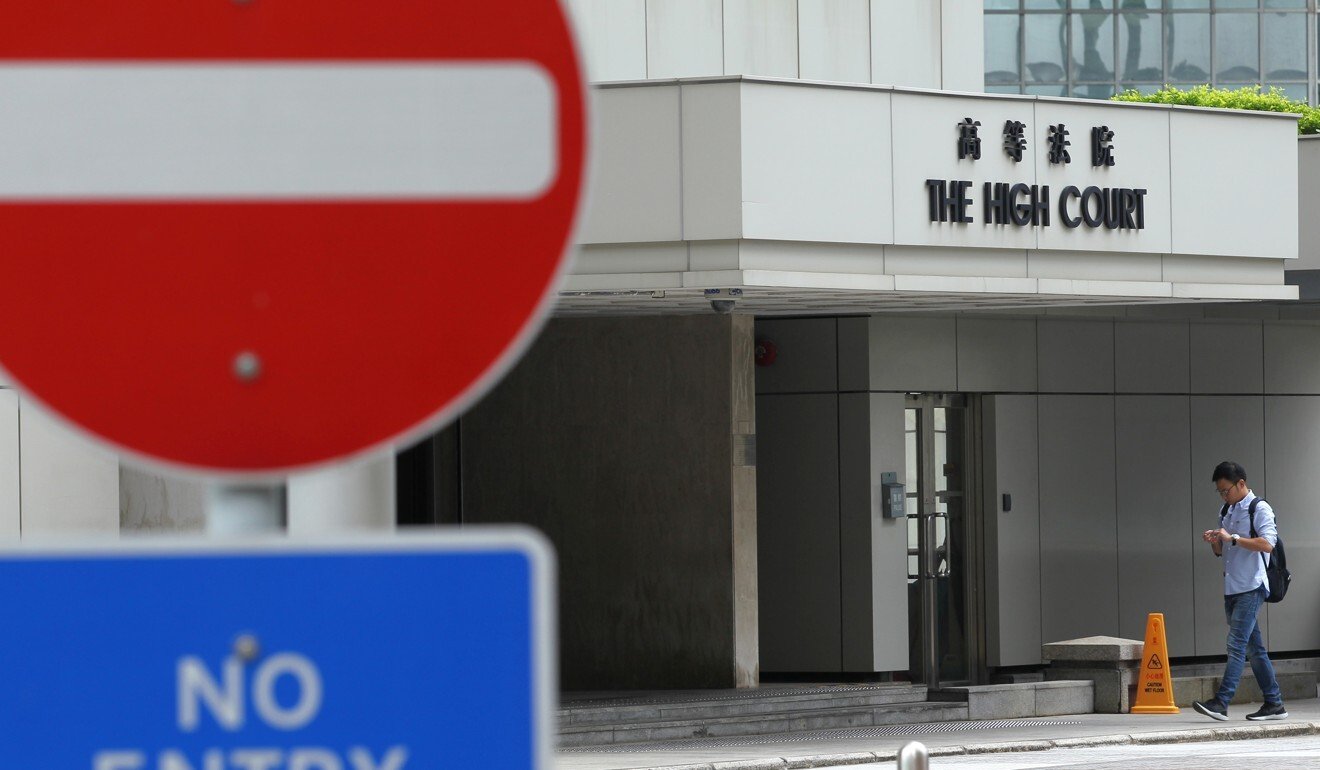
High Court swats down Occupy activist’s challenge of five-year ban on running in Hong Kong elections for those with jail terms
- Occupy activist Raphael Wong’s jail term for incitement charges triggered provisions barring him from Legco, District Council and rural representative races
- A High Court judge ruled on Wednesday that the restrictions were legitimate and served the ‘plainly legitimate’ aim of maintaining public trust
A Hong Kong opposition activist barred from elections due to a jail term served for his role in the 2014 Occupy protests has failed in his bid to challenge electoral laws that restricted his constitutional right to stand in the polls.
Mr Justice Anderson Chow Ka-ming of the High Court on Wednesday concluded that Raphael Wong Ho-ming had presented a reasonably arguable case, but ruled against the activist’s application for judicial review after finding the restrictions “lawful and constitutionally compliant”.
The League of Social Democrats chairman said he had considered standing for four elections to be held between 2019 and 2023, but was prevented by the provisions triggered by the eight-month jail term he received in April last year after an incitement conviction.
The provisions are found in the ordinances governing the Legislative Council, District Council and rural representative elections, all of which disqualify individuals from being nominated for five years if they have been jailed for more than three months in Hong Kong or elsewhere.

Wong’s lawyers argued those provisions were inconsistent with Article 21 of the Hong Kong Bill of Rights, which covers the right to participate in public life, and Article 26 of the city’s Basic Law, dealing with the right to vote and to stand for election.
Neither side argued those rights are not absolute. At issue, rather, was whether the infringement on those rights was proportionate.
The government argued the restrictions advance the legitimate aim of maintaining public trust and confidence in Legco, the District Councils and rural representatives, as well as trust in the character, honesty and personal integrity of persons elected to those bodies.
Let voters decide if candidate suitable for election, Occupy activist’s lawyer says
On Wednesday, the judge concurred that the rights engaged in the present case were important. But Chow also noted that the maintenance of public trust and confidence in public offices was “a matter of considerable public importance” and that the challenged provisions were clearly pursuing this aim, which he found to be “plainly legitimate”.
He further observed that it was “plainly open to the legislature” to prescribe restrictions, as it was better placed than the judiciary to assess who was suitable or unsuitable for office.

The court, he concluded, should respect Legco’s value judgment unless it had clearly drawn unreasonable lines barring hopefuls.
“The restriction … is imposed only after he has been duly convicted of an offence of a degree of seriousness reflected by a prison sentence for a term exceeding three months,” Chow wrote.
“Since no one is suggesting that a person … should forever be barred from standing in any future elections, the setting of an appropriate disqualification period to enable that person to demonstrate that he has sufficiently reformed himself by not committing any further serious criminal offence during the specified period is, I consider, reasonable.”
Wong has appealed his conviction over two incitement charges, which stemmed from an Occupy protest on September 28, 2014.

